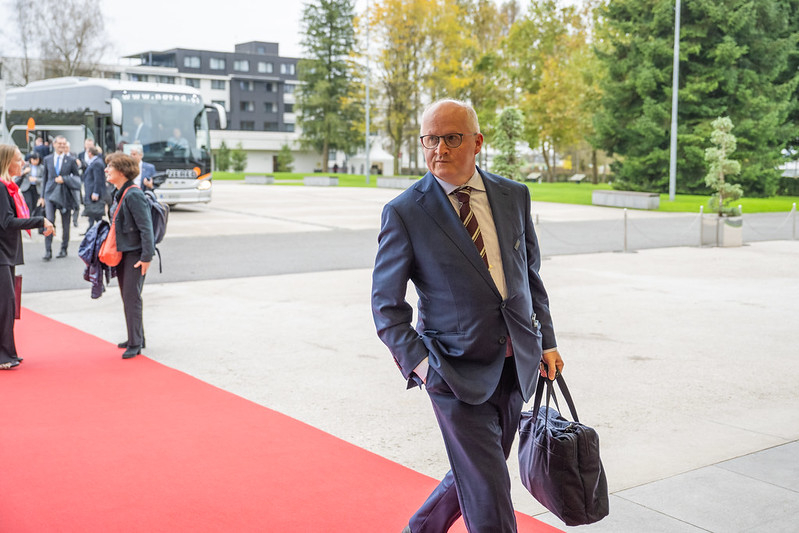ECB’s Lane: ECB Would React to Upside or Downside Inflation Risks
20 December 2024

By David Barwick – FRANKFURT (Econostream) – European Central Bank Executive Board member Philip Lane on Friday said the ECB would react if the euro area economy weakened further.
In an ECB podcast, Lane said of the change in language following last week's monetary policy meeting of the Governing Council that ‘the best way to think about this is if inflation … momentum looks like it’s above 2%, you want to be restrictive. … And essentially what we see now is we see inflation momentum more in the direction of being around 2%’.
It was thus ‘no longer a one-sided issue of saying we want to bring inflation down’, but rather the ECB had ‘made a lot of progress’, he said. ‘Now we are making this transition where we want inflation to stabilise around 2%.’
If the ECB were to stay restrictive for too long, it could undershoot the target, creating ‘a new set of headaches, which we don’t want’, he said.
‘So, it was important to say we’re going to set monetary policy appropriately’, he said. ‘That’s essentially a two-sided commitment. We will react if there’s more upside pressure from all of these risks that might arise. We’ll react if there’s downside pressure, such as a further slowdown in the economy. And that’s a very important signal, and it was the right time to send it.’
Still, Lane seemed optimistic about the economy, noting ‘solid reasons to believe there will be an improvement in the economy’ in 2025 and 2026.
In effect, ‘some of the building blocks are now in place’, he said, with incomes having outpaced prices this year. All the same, he cautioned, a recovery of consumption could lag, ‘because in a world of uncertainty, maybe some people are holding back on consumption decisions.’
As for inflation, the ‘key word’ was that ‘we want to be at 2% sustainably’, he said. Although energy prices were declining, services inflation remained elevated, and the sustainability of price stability ‘requires a greater balance’, he said.
Energy prices would probably not continue to fall, but the adjustment of service sector prices, which were ‘very closely connected to the adjustment of wages’, should ‘enter a kind of completion phase next year’, he said.
The effect of tariffs was ‘purely to the downside for growth in an overall sense’, while ‘the effect on inflation is really uncertain’, he said.
‘I can point to some forces which may add to inflation, at least in the near term’, he elaborated. ‘I can point to other forces such as lower investment, higher precautionary saving, which would be deflationary.’
The ECB would have to look at all aspects of possible tariffs ‘in great detail’, he said. ‘But the message is indeed for the economy, mostly negative. For inflation, it’s a two-sided risk.’
